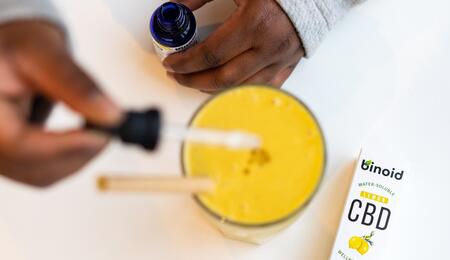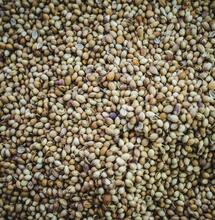FSA update guidance on safe CBD dosages

Due to new 'scientific evidence', the UK's Food Standards Agency (FSA) has dropped its recommended daily intake from 70mg to just 10mg. This means that many single-dose products, such as CBD beverages, capsules and gummies, will now contain levels of CBD over the new limit.
Industry insiders have already raised worries about the absence of clarity from the FSA, which has said it plans to 'work closely with the industry to minimise the risk to consumers'.
The FSA announced to the market that the shift in advice for all CBD foods is founded on 'new evidence from the industry and updated advice from our independent scientific committee'.
As a result, this means that many products on the market will now possess more than the recommended daily intake of CBD in a single dosage.
CBD drinks brands can contain between 15mg per can and 30mg. This new guidance means that some of the most recognised brands in the CBD market will be affected, but to what extent is still unclear.
The FSA has reiterated that their update is 'consumer advice' and that 'no products need to be removed at this stage'. The FSA said, "We will consider changes to our labelling guidance. We encourage industry to include the most up-to-date consumer guidance in their labelling."
Several industry trade organisations have commented that the announcement is "for guidance only and is not enforceable."
Following Novel Food requirements, the FSA used toxicology data from hundreds of CBD products. These datasets were then used to distinguish a dependable toxicological Point of Departure (POD) and a temporary acceptable daily intake (ADI) for pure-form CBD.
The FSA supplied background data for three 'pivotal' 90-day repeat dose toxicology studies. Data from human studies on CBD was also used to complete an interim risk assessment, indicating that a provisional ADI of 10 mg/day for pure-form CBD was roughly correct.
This value is established following 'observations of adverse effects in the liver', with liver impacts and extreme tiredness named as the primary concern.
On its position, the FSA says:
"It cannot be ruled out that long-term daily chronic use of pure form CBD (≥98% purity) at intake levels higher than 10 mg CBD/day could contribute to the development of adverse effects over time, most notably in the liver… Human evidence suggests that with oral intake levels above 70 mg CBD/day, in some individuals, adverse drug-drug interactions with some medications could occur…drug-drug interactions at doses lower than 70 mg/day cannot be ruled out."
There are, however, conflicting views on the subject. A scientific review by US cannabis companies Canopy Growth and Charlotte's Web found a maximum daily intake of 160mg to be typically safe for adults.
The review utilised public data from 28 human clinical trials alongside toxicity studies in animals to arrive at these intake levels of CBD taken as a dietary supplement.
A dose between 100-160 mg daily was considered generally safe for 'healthy adults' who are not attempting to conceive pregnant or breastfeeding. A maximum quantity of 70 mg per day is advised in these cases.
The review emphasised that these recommendations are based on the authors' judgments and should not be regarded as regulatory guidelines.
A previous study, backed by 12 major CBD brands, reportedly found 'no evidence' of liver toxicity in over 800 people taking an average daily dose of 40-50 mg CBD.
More on this topic from Soft Secrets:







